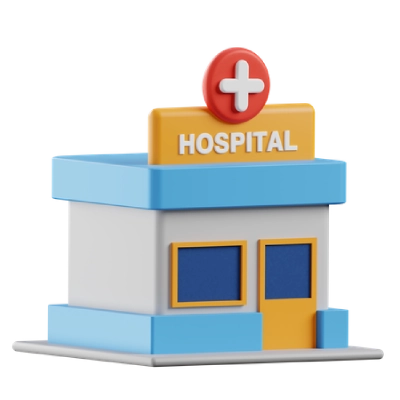Filter By
Name
Consultation Mode
Gender
Price Range
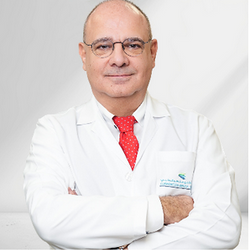




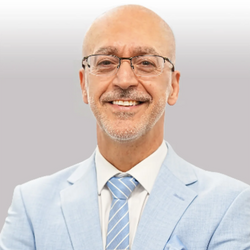

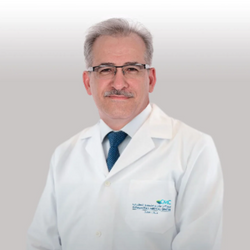

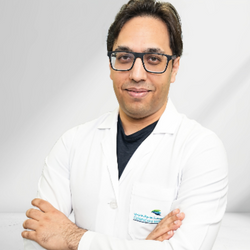
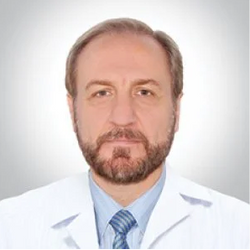
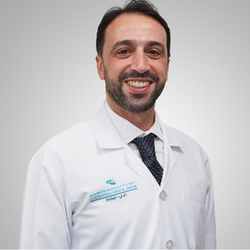

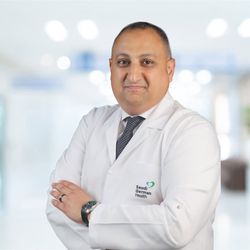
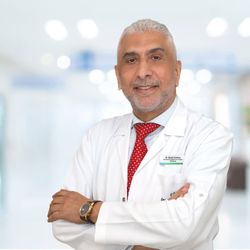


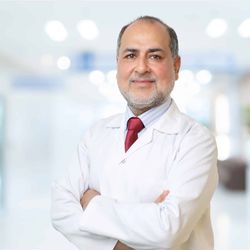
Cardiologists in Dubai and Abu Dhabi – Book the Best Heart Specialists Online | ShopDoc UAE
Heart health is one of the most important aspects of overall well-being. If you’re experiencing chest pain, shortness of breath, dizziness, or symptoms of high blood pressure, it may be time to consult a cardiologist. At ShopDoc UAE, you can find and book appointments with the best cardiologists in Dubai, Abu Dhabi, Sharjah, and other Emirates. Our platform helps patients across the UAE access leading heart specialists for comprehensive cardiovascular care, including consultations, diagnostics, and treatment planning.
A cardiologist is a medical doctor specializing in the diagnosis, treatment, and prevention of diseases related to the cardiovascular system. This includes the heart and blood vessels. In the UAE, cardiologists are highly trained professionals who treat a wide range of conditions, from common issues like high blood pressure and high cholesterol to more serious disorders such as coronary artery disease, arrhythmias, congenital heart defects, and heart failure. Whether you need routine heart check-ups or specialized care for a chronic condition, consulting a qualified heart doctor in Dubai or Abu Dhabi is crucial for timely diagnosis and long-term heart health.
At ShopDoc, patients can easily book online appointments with experienced cardiologists practicing in top-rated hospitals and clinics. You can view doctor profiles, consultation fees, clinic locations, working hours, and verified reviews from other patients to help make informed choices. With advanced search filters, finding the best cardiologist near you in Dubai, Abu Dhabi, or Sharjah has never been easier.
Cardiologists treat a broad spectrum of cardiovascular conditions. Coronary artery disease is one of the most common heart issues in the UAE, caused by narrowing of the coronary arteries and leading to chest pain or even heart attacks. Other critical conditions include atrial fibrillation (AFib), where irregular heart rhythms disrupt blood flow and increase the risk of stroke. Congenital heart disease, often present from birth, may require ongoing care from a pediatric or adult congenital heart specialist. Heart failure, or congestive heart disease, results when the heart can no longer pump blood effectively, causing fluid buildup and fatigue. Cardiologists also treat hypertension, which puts strain on the heart and vessels, and pericarditis, which is inflammation of the protective sac around the heart. High cholesterol levels, a major risk factor for heart disease, are also managed under expert care with medications and lifestyle recommendations.
Each patient receives a personalized treatment plan that may include medication, diet and lifestyle adjustments, and ongoing monitoring. In certain cases, cardiologists collaborate with cardiac surgeons to carry out interventional procedures such as valve repair or bypass surgery. While cardiologists primarily manage conditions with non-surgical methods, they play a vital role in diagnostics, long-term management, and post-operative follow-up.
Recognizing when to see a cardiologist is essential. If you are experiencing persistent chest pain, irregular heartbeat, leg swelling, or have a family history of cardiovascular disease, consulting a heart specialist early can prevent complications. People with diabetes, obesity, or high cholesterol should also consider regular heart screenings. Cardiologists in the UAE use advanced diagnostic tools including ECG, echocardiogram, cardiac stress testing, and cholesterol profiling to assess heart function and risk factors.
It’s important to understand the difference between a cardiologist and a cardiac surgeon. A cardiologist is focused on diagnosis, medication, and non-surgical treatment, whereas a cardiac surgeon performs surgical procedures on the heart and vessels. Both play complementary roles in cardiovascular care, and in many cases, patients are co-managed by both professionals depending on their condition.
A common question among patients is whether heart disease can be reversed. While many forms of heart disease are chronic, early intervention with medication, healthy diet, regular exercise, and smoking cessation can significantly improve outcomes. Regular follow-ups with your cardiologist can help track progress and make adjustments to your care plan.
Another important aspect of heart health management is understanding what a stress test is. A cardiac stress test evaluates how your heart functions during physical activity and helps detect conditions like ischemia or coronary artery disease. This test is useful in diagnosing unexplained chest pain and guiding further treatment.
Making positive lifestyle changes is one of the most effective ways to reduce your risk of heart disease. Cardiologists in the UAE often recommend a Mediterranean-style diet, regular physical activity, weight management, and stress reduction to maintain cardiovascular health. Patients already diagnosed with heart conditions also benefit greatly from cardiac rehabilitation and lifestyle modifications.
Recognizing symptoms of a potential heart attack is vital. If you experience chest pain or pressure, discomfort in the arm or jaw, nausea, sweating, shortness of breath, or dizziness, seek emergency medical care immediately. Timely intervention saves lives and limits long-term damage to the heart.
ShopDoc UAE makes it simple to connect with highly rated cardiologists in Dubai, Abu Dhabi, and Sharjah. Whether you need a preventive heart screening, second opinion, or ongoing care for an existing condition, our platform enables easy access to expert heart care. Browse doctor profiles, compare fees, and book consultations either online or in person at top hospitals and clinics.
Take control of your heart health today. Use ShopDoc to book an appointment with a trusted cardiologist near you in the UAE, and get the professional support you need for a stronger, healthier heart.
What is the Role of a Cardiologist?
A specialist in the diagnosis, treatment and prevention of disorders affecting the cardiovascular system—which includes the heart and blood vessels—is known as a cardiologist. Heart failure, congenital heart defects, arrhythmias , coronary artery disease and heart infections are among the many heart-related disorders that cardiologists treat. Preserving heart health and avoiding complications through medication lifestyle modifications and occasionally medical procedures is their main objective.
What Conditions Do Cardiologists Treat?
Cardiologists treat a wide variety of heart conditions such as
Coronary Heart Disease: This happens when coronary arteries constrict which lowers the heart's oxygen and blood flow. Angina (chest pain) dyspnea and an elevated risk of heart attack are among the symptoms.
Atrial Fibrillation (AFib): The disruption of blood flow between the heart's chambers caused by this irregular heart rhythm may result in heart failure, stroke or blood clots.
Congenital Heart Disease: Defects in the structure and function of the heart that are present from birth frequently need lifelong monitoring and care.
Heart Failure: This is also referred to as congestive heart disease and it happens when the heart cannot adequately pump blood causing fluid to accumulate in the lungs and other areas of the body.
Hypertension (High Blood Pressure): The risk of heart disease is increased by this prevalent condition which places undue strain on the heart and blood vessels.
Pericarditis: Chest pain and other symptoms are brought on by inflammation of the pericardium, the sac that surrounds the heart.
High Cholesterol: High cholesterol increases the risk of heart disease and heart attacks by causing plaque to accumulate in the arteries.
Cardiologists offer individualised treatment programs to manage these disorders which may involve prescription drugs, dietary adjustments, lifestyle adjustments and cardiac rehabilitation. Cardiologists work with cardiac surgeons to perform procedures such as bypass surgery or valve repair when surgical intervention is necessary. When Is the Right
Time to See a Cardiologist?
If you have symptoms like dizziness, leg swelling, shortness of breath, irregular heartbeats, chest pain or high blood pressure you should see a cardiologist. People who have a family history of vascular issues, heart disease or early cardiac death should also think about seeing a cardiologist. The cardiologist will assess symptoms, look over medical history and perform tests to identify the underlying cause and the best course of action.
Cardiologist vs. Cardiac Surgeon
Cardiologists typically treat patients for a long time and concentrate on identifying and treating heart conditions. On the other hand cardiac surgeons perform operations on the heart and blood vessels intervening when surgery becomes necessary.
FAQ
How can I determine whether a visit to a cardiologist is necessary?
Heart disease symptoms such as shortness of breath, chest pain, irregular heartbeat or a family history of the condition are common reasons to see a cardiologist. Cardiology care may also be advantageous for people with high blood pressure diabetes or high cholesterol.
Will heart disease be reversible?
Although heart disease is frequently a chronic condition with medication lifestyle modifications and regular care some of its symptoms like plaque accumulation may be slowed or even eliminated. Maintaining a heart-healthy diet, getting regular exercise and controlling risk factors are crucial.
Why is a stress test conducted and what is it?
A stress test assesses your heart's performance while you're exercising. When diagnosing conditions like coronary artery disease it helps identify problems with the heart's blood flow and evaluates how well your heart responds to exertion.
Can I lower my risk of heart disease by changing my lifestyle?
Indeed a healthy diet, regular exercise, giving up smoking and stress management can all greatly lower the risk of heart disease. For those who have already received a heart condition diagnosis these adjustments may also result in better outcomes.
What symptoms indicate a heart attack?
Shortness of breath nausea, dizziness, chest pain, pressure or discomfort and pain in the arm, jaw or back are all possible signs of a heart attack. Immediately seek emergency medical attention if you encounter these symptoms.
ShopDoc India
All rights reserved by ShopDoc FZ LLC,
In5 Tech, Dubai Internet City
